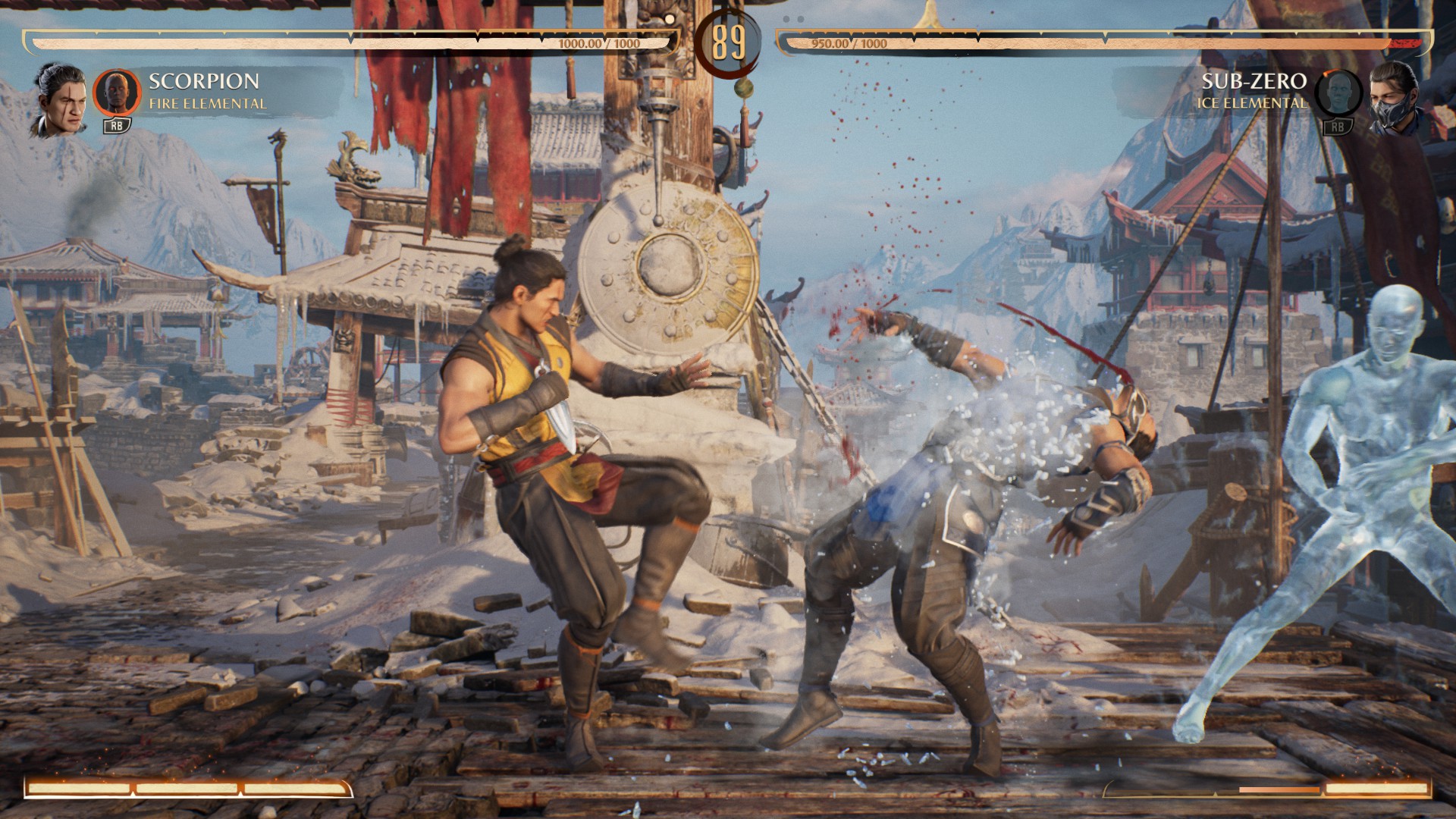Our Verdict
There's the skeleton of a good Mortal Kombat here, but it's lacking in meat. Low on personality and half-baked in its attempt to reboot the story, it feels fated to be remembered as the least interesting of the modern MK games.
PC Gamer's got your back
What is it? The latest entry in the long-running hyper-violent fighting game series.
Release date September 19, 2023
Expect to pay £60 / $70
Developer NetherRealm Studios, QLOC
Publisher Warner Bros
Reviewed on AMD Ryzen 9 5900X, 32GB RAM, Nvidia Geforce RTX 3080
Steam Deck Verified
Link Official site
Few long-running series have reinvented themselves for the modern era as successfully as Mortal Kombat. Since the 2011 reboot found a fresh yet familiar formula for its brawls, and finally made some sense of its sprawling lore, each new entry has had its own distinct and exciting identity, from X's explosion of new characters to 11's clash of past and present. So the question is, what's Mortal Kombat 1's new take on the series? The unfortunate answer is, though it's still a solid fighter, it doesn't really have one.
Mortal Kombat 1 feels more entrenched in the series' past than ever, struggling to iterate on its core systems or to tell an accessible new story.
NetherRealm has pitched this as another soft reboot for the series—a fresh entry point that sheds much of the confusing backstory and welcomes in new players. But that's not really what we've got. Instead, Mortal Kombat 1 feels more entrenched in the series' past than ever, struggling to iterate on its core systems or to tell an accessible new story. It's a fun fighting game at its core, but it's definitely the weakest of the recent MKs, and it's disappointingly lacking in the series' true greatest asset: personality.
For many, the eight-hour cinematic story campaign will be the main draw, especially following on from the universe-shattering events of the end of Mortal Kombat 11. The long and short is, hero-turned-god Liu Kang has rebooted time to create a more peaceful and chummy version of the setting, with many of the classic villains carefully neutered or redeemed by their new circumstances. As you might expect from a series known for its gory executions, that peace is fated not to last, largely thanks to the meddling of a mysterious villain who seems to want to correct the path of history back towards violence and chaos.
The first half is promising, seeming to strip things back to a simpler kind of Mortal Kombat story—one more grounded in martial arts movies than grand, multiverse-spanning fantasy. Familiar characters are reimagined in interesting ways—Raiden is now a plucky mortal champion, Mileena is a noble heir tortured by a dark secret, and Sub-Zero and Scorpion are brothers in the same clan. Fans of long-standing jobbers Baraka and Reptile, who traditionally exist just to get beaten into pulp while the heroes wait for some real villains to come along, will be thrilled to hear they both finally get their due, getting to be endearing anti-heroes this time around.
But this new set-up barely gets the chance to find its feet before we're back into mind-bending nonsense, and the story gets bogged down in reheated ideas, twists that rely on you knowing what happened not only in MK11 but in its DLC expansion too, and bizarre tributes to the early-2000s era games. As a long-time fan, I couldn't help but feel it's all been done much better before; for a newcomer, I suspect it would all be impenetrable.
Blow by blow
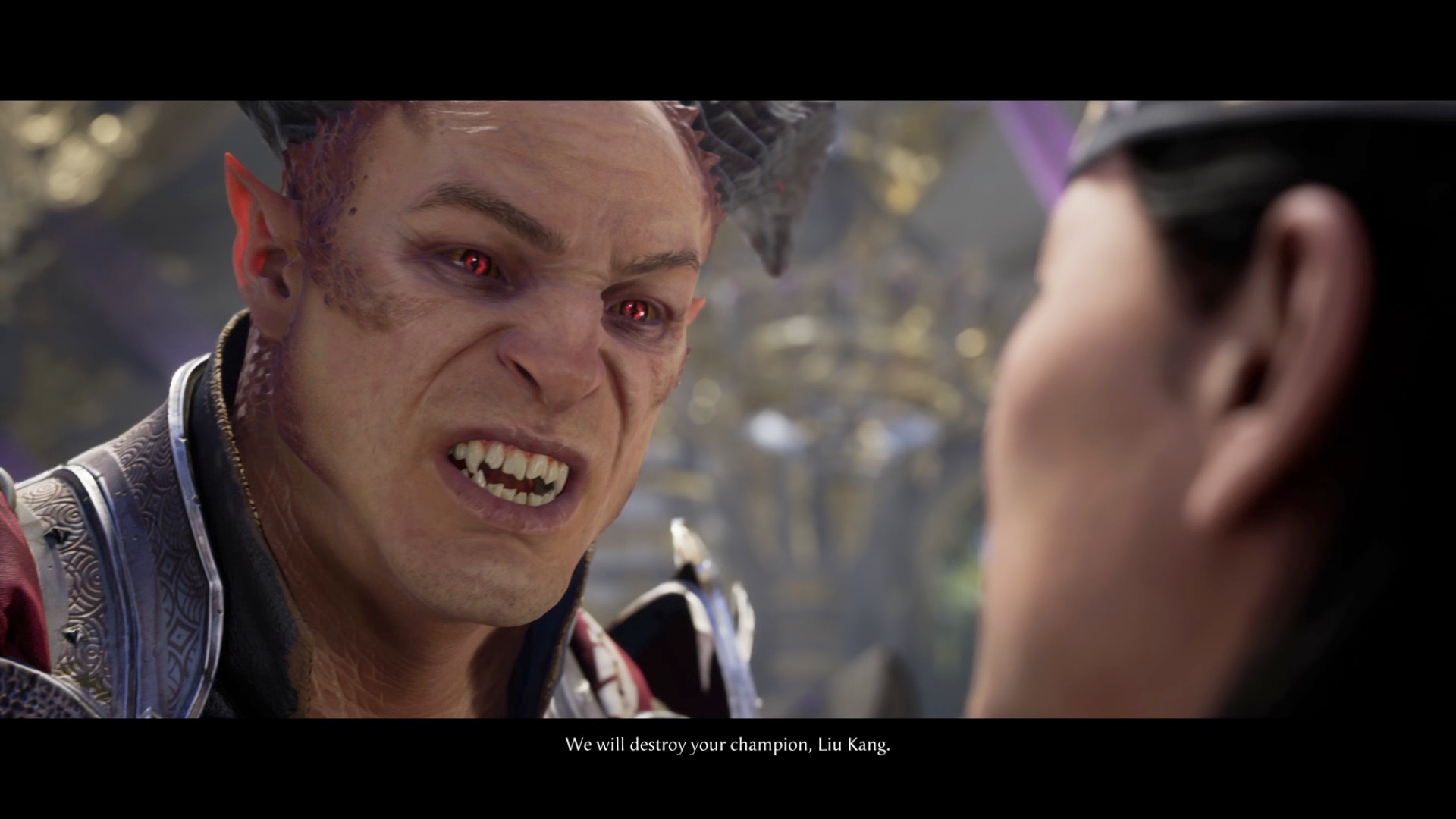
The core experience of picking your favourite and mashing buttons until you get to rip the other guys' head off is fundamentally still good.
That story leaves us with a pretty mixed cast of fighters. Old mainstays like Scorpion and Sub-Zero feel as robust as ever, while a few old hands like Reptile, Shang Tsung, and Li Mei have received fun and flashy reinventions. Many of the characters brought back from the 3D era, however—such as Nitara, Ashrah, and Reiko—fail to overcome the fact that they weren't especially interesting first time around (though it has to be said that self-mutilating maniac Havik couldn't fit more perfectly in the gorier than ever modern era). Outside of DLC guest characters from other properties, there are no new faces here at all, and the story even makes an oddly mean-spirited jab at X's "Kombat Kids", as if to dismiss the idea.
The core experience of picking your favourite and mashing buttons until you get to rip the other guys' head off is fundamentally still good. Mortal Kombat remains the perfect fighting game for people who aren't very good at fighting games—with its relatively slow pace, simple inputs, and forgiving timing, even someone as clumsy-fingered as me can put together a few combos and have a good time. And that's not to say there isn't depth, either—a quick browse of YouTube will show you series veterans already figuring out wonderfully brutal ways to tear each other to bits online.
But what's here feels copied over pretty directly from MK11. The only real improvement is in what's taken away—it ditches more gimmicky mechanics like Krushing Blows while holding onto simple, fun stuff like perfect blocks and the hail mary Fatal Blow special moves. It's a pleasingly clean system, at least—you can easily see how each element fits in and where to put your focus.
Friendship
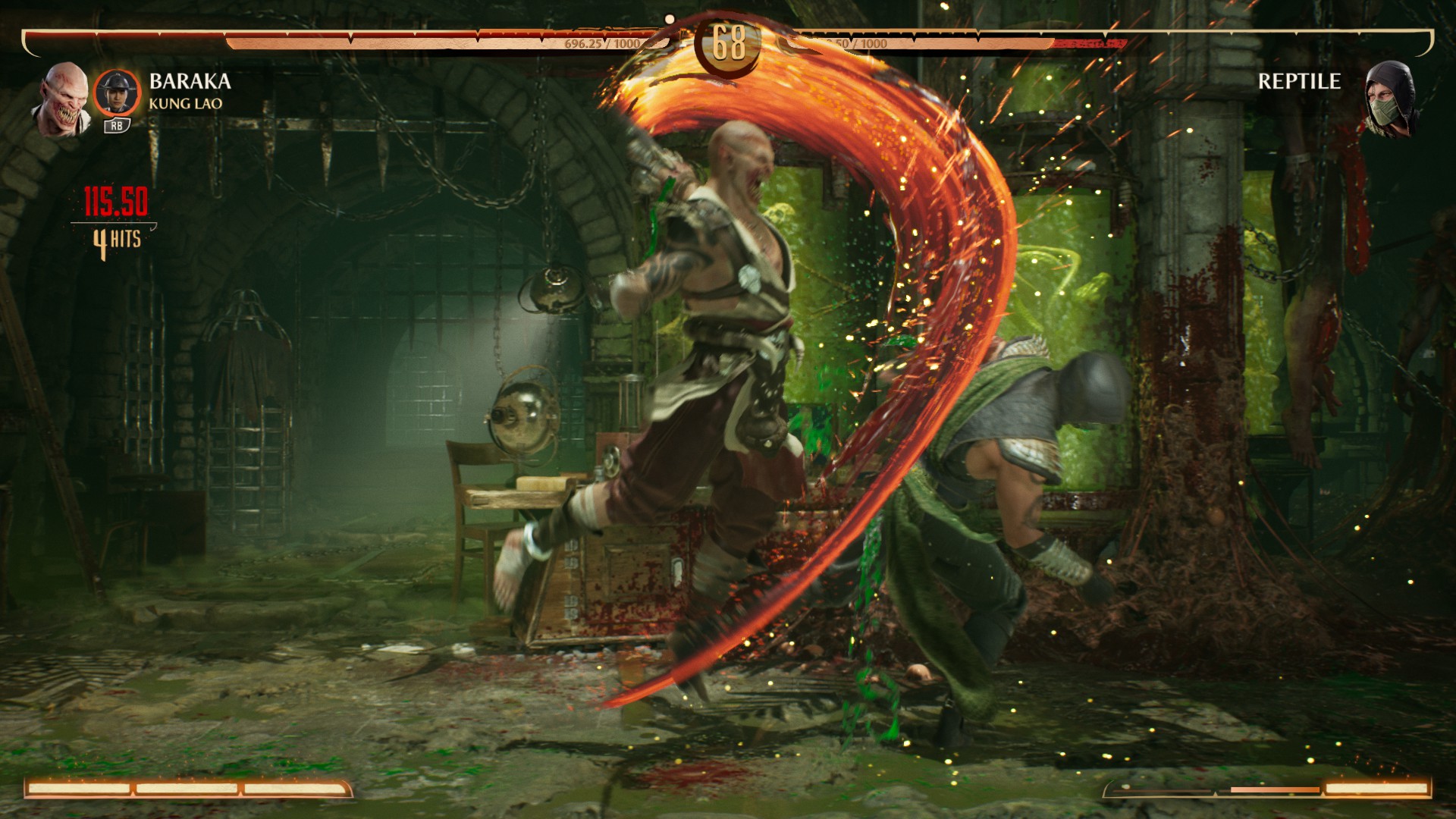
There are no intro dialogues in ranked (bizarrely the only place these seem to play is in unranked online matches and local play) and customisation has been hugely pared back.
The big new addition is Kameos. This essentially lets you give your fighter a sidekick, who can jump in to throw out one of a small set of special moves to supplement your own. It works, and it's easy to get to grips with, but it feels pretty basic and unimpactful compared to the variant system of X or the full custom loadouts of 11. There's a hacked together feel to it—it's essentially a multiplayer version of an idea that was in 11's singleplayer modes, and it reuses a load of old character designs (and maybe even the models themselves?) that don't really fit the new aesthetic. Competitive players may be happier that it's a simple and easier to balance addition, but it's not much to get excited about.
Performance has been slick on my machine (AMD Ryzen 9 5900X, 32GB RAM, Nvidia Geforce RTX 3080), despite the series' history of dodgy PC ports—I've had no trouble hitting a consistent 60FPS, which has been particularly pleasing in online multiplayer. The offering there is functional but barebones—there's ranked and unranked battles, and seasonal rewards, and not a lot else. Obvious QoL elements like queuing up in practice mode or seeing pings in-match are conspicuously absent, but more damning is how much MK1's lack of personality manifests here. There are no intro dialogues in ranked (bizarrely the only place these seem to play is in unranked online matches and local play) and customisation has been hugely pared back. Gone are customisable intros and outros, each character has only one cosmetic slot (compared to three in MK11), and the range of skins and palettes is limited. It means less ability for players to show off, but also less chance for the characters to express themselves. It's so much harder to get attached to your main, and matches feel oddly utilitarian as a result.
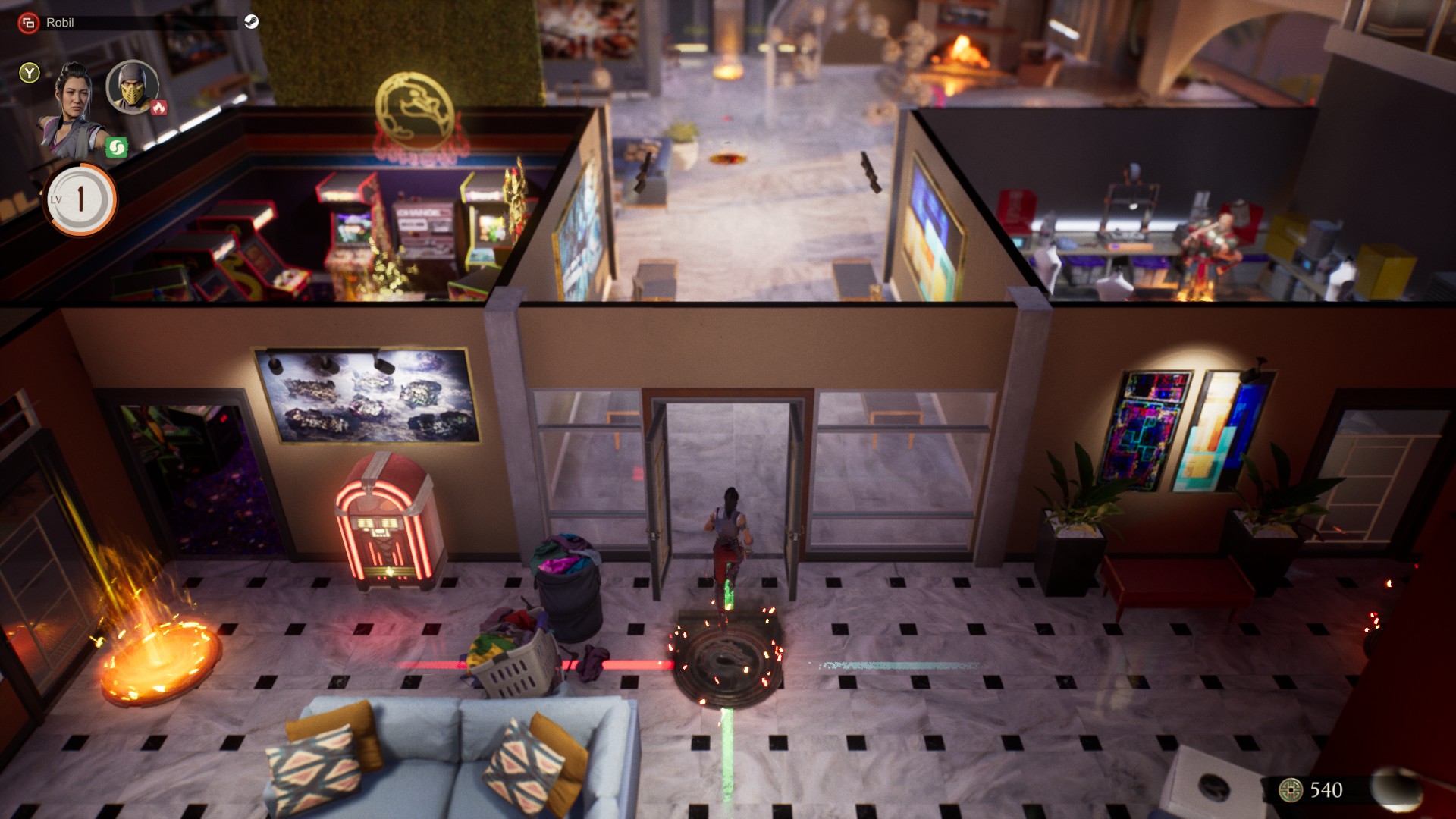
Similarly muted is Invasions, a new singleplayer mode that essentially replaces both Towers of Time and the Krypt. Framed like an RPG, it sees you moving around nodes on a top-down map that's troublingly reminiscent of a mobile game, fighting mostly brief one-round battles or taking on mini-towers to earn XP, currency, and items. Most of Towers of Time's key problems are inherited—particularly NetherRealm's practice of compensating for bad enemy AI with overpowered moves and annoying modifiers. But the format creates new pain points too, particularly how slow it is to move around the maps, and the lack of flair around the battles (no intro animations and again no intro dialogues) can only draw attention to how repetitive and grindy they really are.
The weirdness and secrets of the Krypt are sorely missed, and though new Invasions content is promised each season, the price to be paid for that is that this entirely singleplayer mode can only be played online. In fact, pretty much the whole game only works online or bugs you for being disconnected, which is particularly galling when the network goes down for NetherRealm's own maintenance periods.
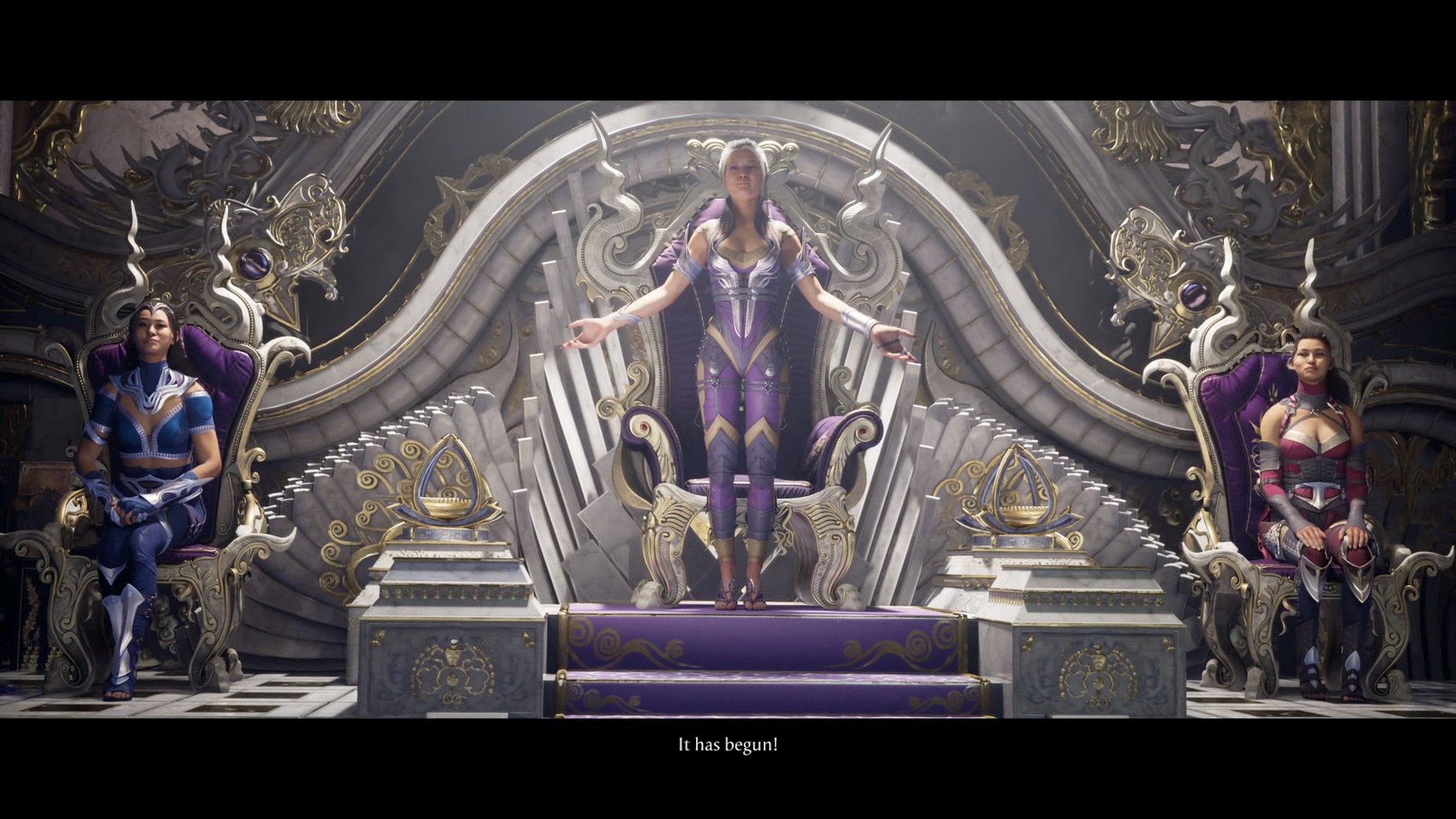
If all you need out of a new MK is a stable ranked mode and a Sub-Zero with a good ice slide, Mortal Kombat 1 provides.
Despite being in development for a full four years, just like its recent predecessors, there's something oddly rushed about Mortal Kombat 1. It feels assembled from existing parts—both in terms of its mechanics and its story. With the last three games having been so wonderfully distinct in their identities, it's disappointing how reined in this one is, especially given its seeming ambitions to start another fresh chapter for Mortal Kombat.
If all you need out of a new MK is a stable ranked mode and a Sub-Zero with a good ice slide, Mortal Kombat 1 provides, and catching your opponent in that lengthy combo you've been practicing all week is as satisfying as ever. But if you're a longtime fan excited to see what new innovations and ideas the team has cooked up, or a newcomer hoping to see what all the fuss is about for the first time, I think that like me you'll be left a little cold—and a tad apprehensive about where the series goes from here.
There's the skeleton of a good Mortal Kombat here, but it's lacking in meat. Low on personality and half-baked in its attempt to reboot the story, it feels fated to be remembered as the least interesting of the modern MK games.

Formerly the editor of PC Gamer magazine (and the dearly departed GamesMaster), Robin combines years of experience in games journalism with a lifelong love of PC gaming. First hypnotised by the light of the monitor as he muddled through Simon the Sorcerer on his uncle’s machine, he’s been a devotee ever since, devouring any RPG or strategy game to stumble into his path. Now he's channelling that devotion into filling this lovely website with features, news, reviews, and all of his hottest takes.
